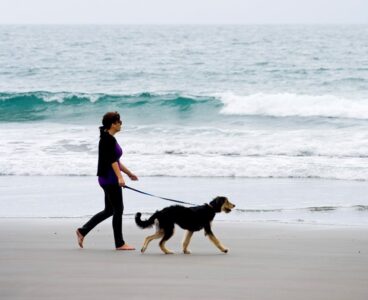
Summer is here and as the days warm up, our pets just as keen as us to spend more time outdoors.
However, their innate tendency to stalk and injure wildlife means it’s our responsibility to ensure they’re kept under control, to protect our precious native species, says Michelle Le Long, Chief Operating Officer for pet insurance provider PD Insurance (pd.co.nz).
Domestic moggies like to calmly curl up on our laps, yet they’re highly efficient killers, says Le Long.
“A 2010 University of Otago study estimated that New Zealand’s 1.4 million domestic cats kill at least 18.76 million animals a year, including 1.12m native birds,” she says.
The study found species like piwakawaka/fantail only existed in urban areas because they restocked their populations with birds from outlying areas, as cats killed all the urban birds.
Jingle all the way
The good news from the research, says Le Long, is placing bells on cats halves the number of birds caught. And in a 2019 study on cat-owner behaviours to reduce wildlife predation, researchers found the best method for cat owners to help wildlife was to keep them inside from dusk till dawn.
Other recommendations included microchipping your cat and registering it with local council, containing it with a fence or outdoor run, limiting the number of cats per home, and de-sexing.
Pooches on beaches
Dogs can also have a negative impact on native species via predation or disturbance. Flightless birds such as kiwi and weka – and birds that nest on our beaches such as dotterel, blue penguin, godwits and oyster catchers – are particularly vulnerable.
The Department of Conservation (DOC) website says the mere presence of dogs is enough to stress shorebirds. “Off-leash dogs that chase birds interrupt the foraging and resting time of shorebirds and the birds expend large amounts of valuable energy escaping pursuing dogs.”
Dogs are also, unfortunately, a major predator of kiwi, says Le Long. DOC notes that predation of adult kiwi by dogs and ferrets can cause catastrophic declines in local populations. It says in some populations dogs have surpassed stoats and ferrets as the main cause of decline.
Brush up on the rules
Many conservation areas administered by DOC are closed to dogs or have leash or permit requirements, but Laura Boren, Science Advisor at DOC, says many people either aren’t aware of the rules or disregard them.
“It’s a good idea to jump online at www.doc.govt.nz/parks-and-recreation/know-before-you-go/dog-access/ to see what the rules are for dogs,” she advises.
She has three tips for observing the rules when you and your dog are exploring this summer:
Know before you go: check online for rules at different locations – councils may have recently changed rules and signs may not be up to date.
Keep an eye out for wildlife: always carry your lead and leash your dog when anywhere around wildlife populations. Also, let others around know if seals or penguins are present.
Call your dog to you as soon as you spot wildlife: if your dog doesn’t return to you consistently on command, consider obedience training. Classes help you and your dog to bond and become a team, so you know they will be under control and safe.
Dogs are allowed in many parks managed by city and regional councils. Check for permitted dog trails at www.doc.govt.nz/parks-and-recreation/things-to-do/walking-and-tramping/.
Protecting our islands
Last summer, DOC and Auckland Council urged the public to report sightings of dogs on the Hauraki Gulf’s pest-free islands after a spike in potentially illegal incidents. The Gulf has 47 pest-free islands, all home to a variety of threatened native species.
Staff from both agencies received reports of people breaking the rules over the busy summer recreational boating period. DOC senior biodiversity ranger, David Wilson, says dogs can do considerable damage to recovering bird populations in a very short amount of time, by killing or injuring the birds or destroying their nests.
“Anyone planning to visit a pest-free island needs to know the rules, and it’s actually pretty simple – dogs are not permitted,” Wilson says.
Serious consequences
Anyone caught breaking the rules could face a hefty fine or court prosecution, depending on the nature of the offence. DOC can enforce the Dog Control Act 1996, which includes prison time or a fine of $20,000 for the owner of a dog that kills protected wildlife. As the court can also order the destruction of your dog, it’s crucial to know and follow the rules to ensure you and your pooch can enjoy a safe and stress-free summer, Wilson says.










